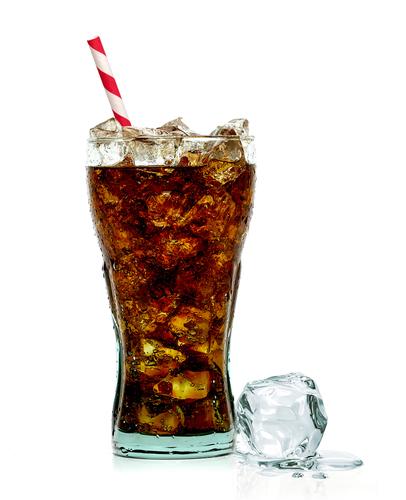If you just read the headlines, you'd immediately run to your pantry (or wherever you keep soft drink) and pour all your diet sodas down the sink. After all, they increase your risk of stroke and who knows what else, according to a new study just published in Stroke! But before you pop the top on those cans, please read this — that new study has nothing to say about a causal connection between diet drinks and cardiovascular ailments, and there are at least a couple of good reasons why I can say this.
First, this is an observational study, the weakest type. The investigators (the senior authors of the report were Drs Sudha Seshadri and Paul. F. Jacques of the Framingham Heart Study) examined data from 2888 individuals older than 45 for new cases of stroke, and 1484 people over 60 years old for new cases of dementia. They determined the participants' beverage consumption from food frequency questionnaires five, six, and seven years after the start of the study. Then, they examined whether there was a correlation between consumption of either sugar-sweetened or artificially sweetened beverages with stroke or dementia. They found that the hazard ratios (1) for stroke and dementia were 2.89 and 2.96 (almost three-times greater) respectively when comparing daily cumulative intake of diet drinks to no intake at all.
The first problem is that this was a strictly correlational study — and correlation may or may not have anything to do with causation, as we've pointed out many times in the past. The investigators were not comparing consumers of diet drinks to people consuming a placebo — the type of study that would indicate causation. In such a study people would be randomly assigned to each study group, which is a way to assure that they were matched on other demographic parameters. Indeed, in their discussion, the authors stated: "Clinical trials are needed to establish whether the consumption of artificially sweetened beverages is causally related to dementia or surrogate end points, such as cognitive decline or brain atrophy." The same is surely true for stroke, as they said: "it remains unclear whether artificial sweeteners cause hypertension [a major risk factor for stroke] or whether diet beverages are favored by those most at risk."
Second, food frequency questionnaires have been criticized as being not necessarily accurate depictions of study subjects' food or beverage intake. What people say they eat and what they actually do can be quite different.
Third, although the researchers statistically controlled for a variety of factors that might affect a person's risk of stroke or dementia, such as smoking, diabetes, age, sex, diet quality and physical activity, they did not control for obesity—probably the single most important factor. Since obese persons are known to have a greater cardiovascular risk and are more likely to drink artificially sweetened drinks to help control their weight, the error becomes obvious. Diet soda does not cause stroke. People who are obese are more likely to have cardiovascular disease, and drink more diet soda. Getting out of bed does not make your alarm go off.
So not only should you not derive health advice from headlines, don't believe that such observational studies prove that factor A causes condition B or C. At least until either well-run interventional studies confirm their results, or a series of observational studies show an alarmingly high probability of harm, as was seen in studies of smoking and lung cancer.
Note:
1)The hazard ratio is a comparison between the probability of events in a treatment group, compared to the probability of events in a control group. It’s used to see if patients receiving a treatment progress faster (or slower) than those not receiving treatment. In this case, those who drink diet drinks would be considered the "treatment" group, while those who reported no consumption of diet drinks would be considered the "control" group.




